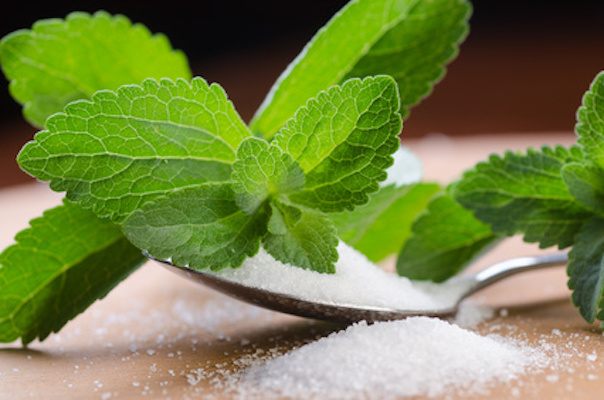Diabetes is a real problem in the United States. The Center of Disease Control and Prevention (CDC) reports that 37.3 million people have diabetes and 96 million have pre-diabetes. Obesity is also on the rise. More than 42% of Americans are obese.
Artificial Sweeteners vs. Real Sugar
In a world where sugar is making us sick, artificial sweeteners sound like a great option. They can replace sugars that are high in calories (each gram of refined table sugar contains 4 calories) and that lead to high blood glucose levels, contributing to diabetes.
Many sugar substitutes, on the other hand, have zero calories per gram. Because of this, they are often referred to as non-nutritive sweeteners. Some sweeteners, like stevia, may even lower blood sugars, making it tricky to control your blood sugars. People with diabetes may need to be careful when they use it.
Examples of FDA-approved non-nutritive sweeteners are:
- Acesulfame potassium (Sunett, Sweet One)
- Aspartame (Equal, NutraSweet)
- Saccharin (SugarTwin, Sweet’N Low)
- Stevia extracts (Pure Via, Truvia)
- Sucralose (Splenda)
Despite the theory behind artificial sweeteners, several studies have shown that many artificial sweeteners have led not to weight loss but to weight gain. There are even increased rates of diabetes!
Triggering Prediabetes Despite Fewer Calories
Artificial sweeteners bind to “sweet” receptors in the gut and pancreas. This could potentially trigger hormones that alter your metabolism and affect how much insulin you make. When you release too much insulin, you are more likely to develop resistance to it. Insulin resistance makes it harder for your body to keep blood sugars in check, leading to pre-diabetes and down the road diabetes. Also, the more insulin you have in your body, the more likely you are to store fat and gain weight.
While many studies show insulin changes with artificial sweeteners in vitro (in the laboratory setting), only a few confirmed this in vivo (in living subjects). For example, saccharin has been shown to increase insulin production in rats. Stevia has been shown to decrease glucagon release in humans with type 2 diabetes, leading to an increase in insulin production. Other non-nutritive sweeteners have been shown in humans to increase GLP-1 release, a hormone that increases insulin and decreases glucagon production.
Effects on the Microbiome
Artificial sweeteners may also change the characteristics and types of bacteria living in your GI tract. By altering the gut biome, they may change what hormones and how much of these hormones the gut secretes. Your metabolism evolves, unfortunately in favor of insulin resistance.
Dr. Ruthi Machur, director of clinical research and clinical operations for medical associated science and technology at Cedars-Sinai Medical Center, presented preliminary results during 2023’s Digestive Disease Week. Her study looked to see how different artificial sweeteners affected bacteria in the small intestine. She checked the bacteria in the small intestine by performing upper endoscopies on the study participants. People who ate artificial sweeteners, specifically those that were not aspartame-based, had less diverse bacteria in their gut than those that did not eat them, and the balance of bacteria was generally unfavorable, tending to cause GI bloating and changes in bowel habits.
The Take Home Message
As we gather more data, we’re finding that use of artificial sweeteners is not all we had hoped it would be. In fact, the World Health Organization has formally recommended that these sweeteners not be used for the purposes of weight loss. The risks outweigh the benefits.
It cannot only be about calories. Sugar is bad for us but artificial sweeteners have consequences too. Take care to not overindulge. It may be better to stick with plain water, coffee or tea.
References
Artificial sweeteners linked to “marked effects” on small intestinal microbiome. (2023). Healio.com. https://www.healio.com/news/gastroenterology/20230511/artificial-sweeteners-linked-to-marked-effects-on-small-intestinal-microbiome
Brown, RJ and Rither KI. Non-Nutritive Sweeteners and their Role in the Gastrointestinal Tract. J Clin Endocrinol Metab. 2012 Aug; 97(8): 2597–2605. https://doi.org/10.1210/jc.2012-1475
Centers for Disease Control and Prevention. Adult Obesity Facts. http://www.cdc.gov/obesity/data/adult.html.
Duffey KJ, Steffen LM, Van Horn L, Jacobs Jr DR , and Popkin BM. Dietary patterns matter: diet beverages and cardiometabolic risks in the longitudinal Coronary Artery Risk Development in Young Adults (CARDIA) Study. Am J Clin Nutr. 2012 April; 95(4): 909-915. https://doi.org/10.3945/ ajcn.111.026682
Fowler SP, Williams K, Resendez RG, et al. Fueling the Obesity Epidemic? Artificially Sweetened Beverage Use and Long-term Weight Gain. Obesity. 2008 August. 16(8): 1894–1900, https://doi.org/10.1038/oby.2008.284
Health effects of the use of non-sugar sweeteners. (2022). World Health Organization. https://www.who.int/publications/i/item/9789240046429
Pepino MY. Metabolic effects of non-nutritive sweeteners. Physiol Behav. 2015 Dec 1;152(Pt B):450-5. https://doi.org/ 10.1016/j.physbeh.2015.06.024
Suez J, Korem T, Zeevi D, et al. Artificial sweeteners induce glucose intolerance by altering the gut microbiota. Nature. 2014 Oct 9; 514(7521): 181-6. https://doi.org/10.1038/nature13793
Suez J, Korem T, Zilberman-Schapira G, Segal E, Elinav E. Non-caloric artificial sweeteners and the microbiome: findings and challenges. Gut Microbes. 2015;6(2):149-55. https://doi.org/10.1080/19490976.2015.1017700


Leave a Reply